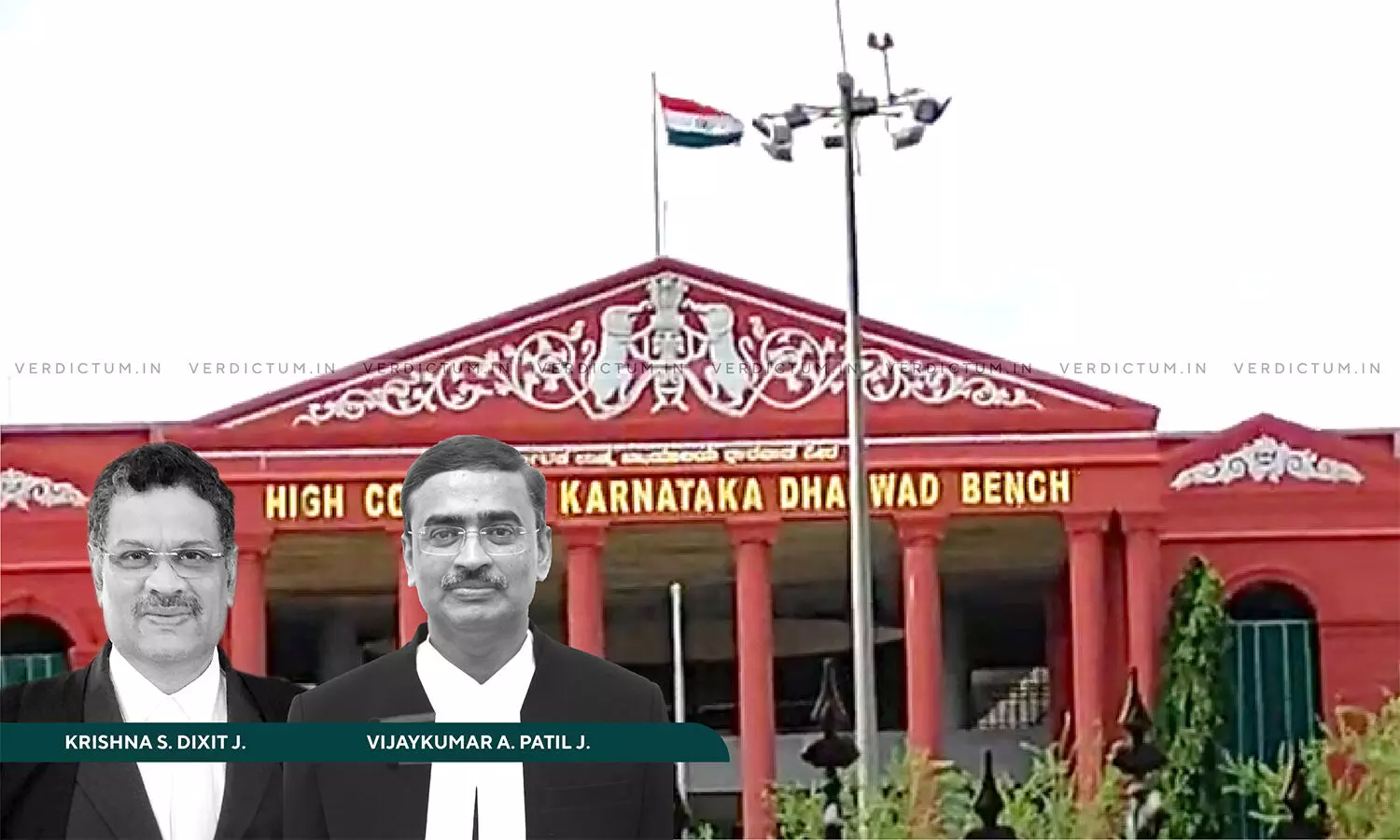
Treating Lands Of Same Village As Equal While Ignoring Demonstrable Differences Offends Rule Of Equality: Karnataka HC
 |
|The Karnataka High Court observed that, treating lands of the same village as equal and ignoring the demonstrable differences, offends the Rule of Equality under Article 14 of the Constitution.
The Dharwad Bench observed thus in a batch of various Appeals challenging the multiple Judgments and Awards entered by the Reference Court under Section 18(1) of the erstwhile Land Acquisition Act, 1894 (LA Act) by which compensation was enhanced after determining the market value of the lands acquired, afresh.
A Division Bench comprising Justice Krishna S. Dixit and Justice Vijaykumar A. Patil held, “Even in respect of lands in the same village, differences in their valuation may galore regard being had to a host of factors such as conversion potential, fertility levels, nature & location and therefore, treating them all as equal ignoring the demonstrable differences, would offend the rule of equality constitutionally enshrined in Article 14. ‘Equality’ enjoins, treating equals as equals, and not unequals as equals.”
Senior Advocate Dhyana Chinnappa represented the Appellants while Senior Advocate Gurudas Khannur represented the Respondents.
Facts of the Case -
In one set of the Appeals preferred by the Karnataka Industrial Areas Development Board (KIADB), it was the immediate beneficiary of acquisition, mediate beneficiary being the Allottee. Both complained that the enhancement of compensation was exponential qua the SLAO (Special Land Acquisition Officer) Award and the same was unjustified. In other set of Appeals preferred by the Claimants, grievance was that the enhancement of compensation falls short of what was legally due to them. KIADB being established under Section 5 of the Karnataka Industrial Areas Development Act, 1966 (KIAD Act) was formed for the purpose of establishing/developing industrial area. 4950.61 acres of lands in four villages of Ballari District were acquired by the State for setting up industries and none of the landowners objected to the same.
The Price Advisory Committee (PAC) had fixed compensation at the rate of Rs. 1,50,000/- for the lands in Kuditini Village, Rs. 2,31,000/- for the lands in Kolagallu Village, Rs. 1,86,000/- for the lands in Veniveerapura Village, and Rs. 22,000/- for the lands in Yerangalige Village. An Award was passed in 2013 and the Claimants received the amount under protest. Therefore, the Reference Cases arose and the KIADB and Allottee resisted the claim for enhancement of compensation. The References Case were allowed, enhancing the compensation amount. Hence, the KIADB preferred Appeals and on the contrary, the Claimants also preferred other set of Appeals. The Allottee-Company moved a Review Petition but it was dismissed, however, the challenge to the same in writ jurisdiction was allowed by the Single Judge. Hence, the case was before the High Court.
The High Court after hearing the arguments from both sides, emphasised, “While discerning the ratio of a decision, one has to keep in mind a set of primary principles possessing higher normative value in the Legal System. Otherwise, the System, which is expected to function as a body of coherent principles, would have norms that may compete, if not conflict, with one another, each diminishing the value of other and thereby creating a chaotic market of values. That would not augur well to the civilized jurisdiction in general, and to the administration of justice in particular.”
The Court noted that the compensation is determined principally on the basis of market value of the lands concerned and the market value of land in Kashmir would be much different from that of the land in a tiny village nearby Kanniyakumari and other lands situated in between.
“If owners of land nearly to the extent of 90% after deliberation have accepted the above values, sans any demur, it cannot be without any reason or rhyme. The determination of compensation by the PAC appears to be just & proper. It is not that non-parties too are bound by those arrangements; legally speaking they are not. However, when a big chunk of land-losers have accepted the determination of compensation, that cannot be brushed aside while re-determining the same in contested matters, especially when fraud, fabrication or the like are not alleged”, it further remarked.
The Court also said that, on what basis the Reference Court has enhanced the compensation exponentially, remains a mystery wrapped in enigma and that the enhancement granted by the Reference Court is not justified to a large extent.
“Justice of the case warrants that the enhancement granted by the Reference Court needs to be set at naught and the compensation awarded by the SLAO needs to be marginally enhanced”, it concluded.
Accordingly, the High Court partly allowed the Appeals and modified the impugned Judgments and Awards.
Cause Title- The Special Land Acquisition Officer & Anr. v. B. Hanumanthi & Anr.
Appearance:
Appellants: Senior Advocate Dhyana Chinnappa and Advocate G.I. Gachchinamath.
Respondents: Senior Advocate Gurudas Khannur, Advocates Anandkumar A. Magadum, Archana A. Magadum, and Veeresh R. Budihal.